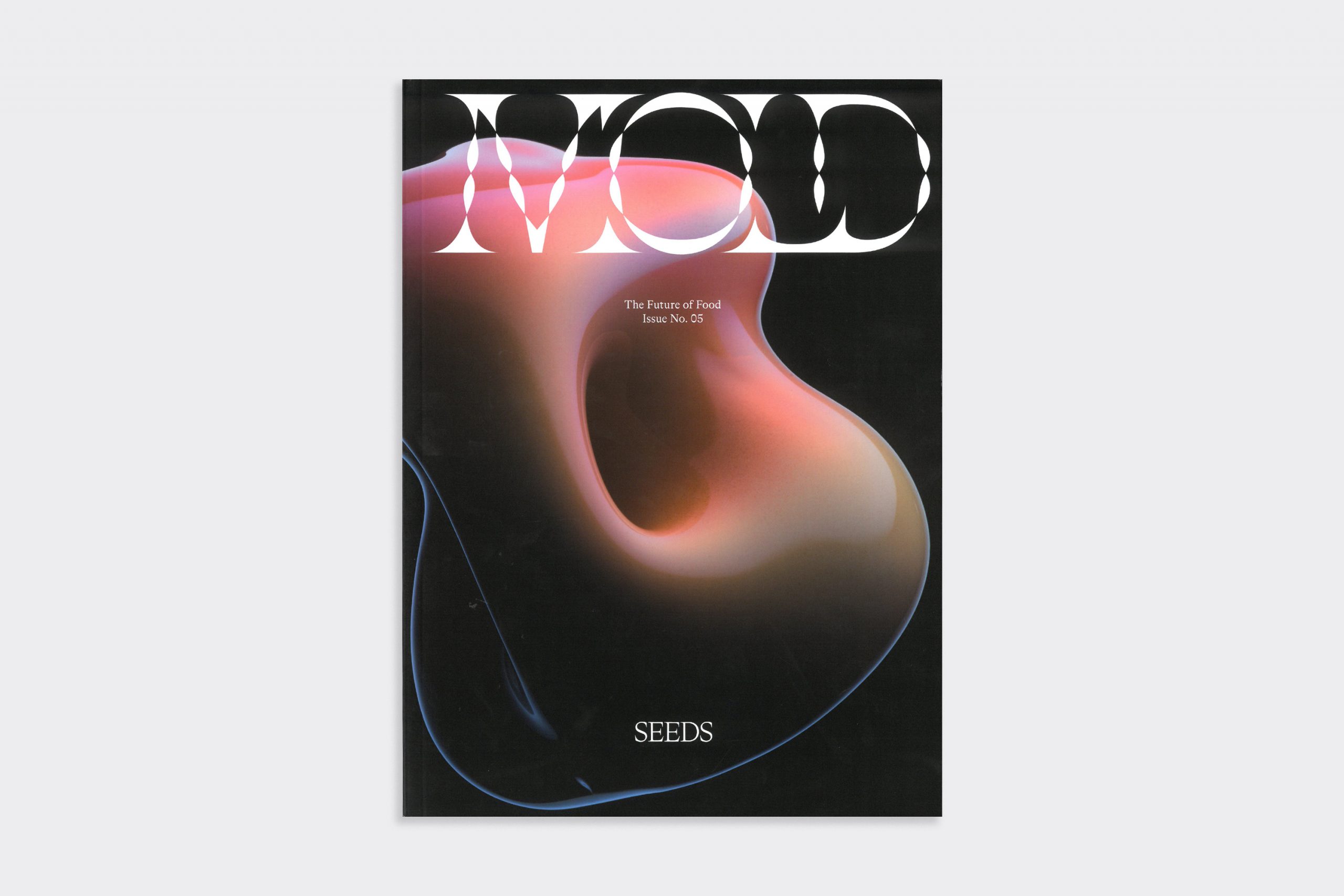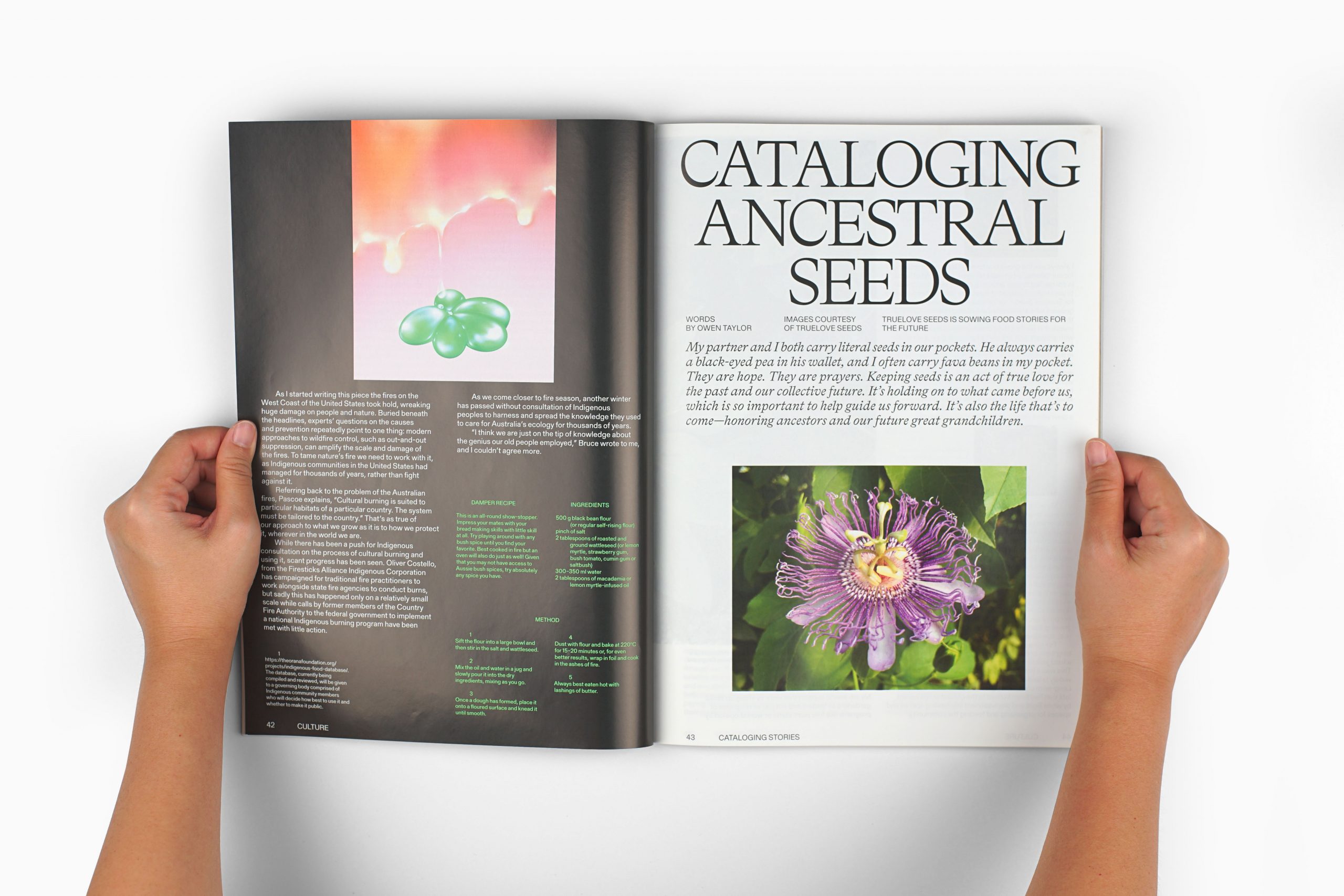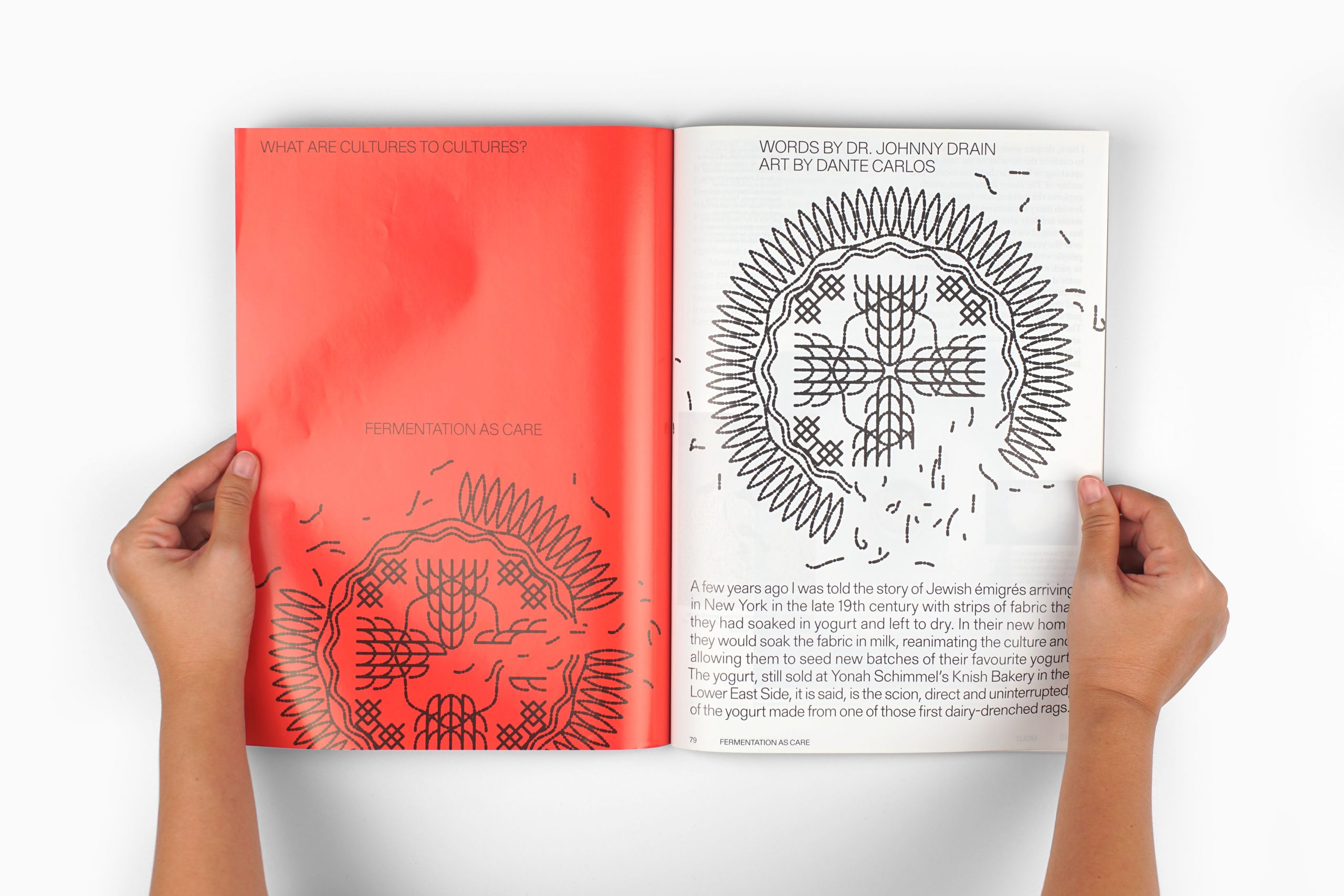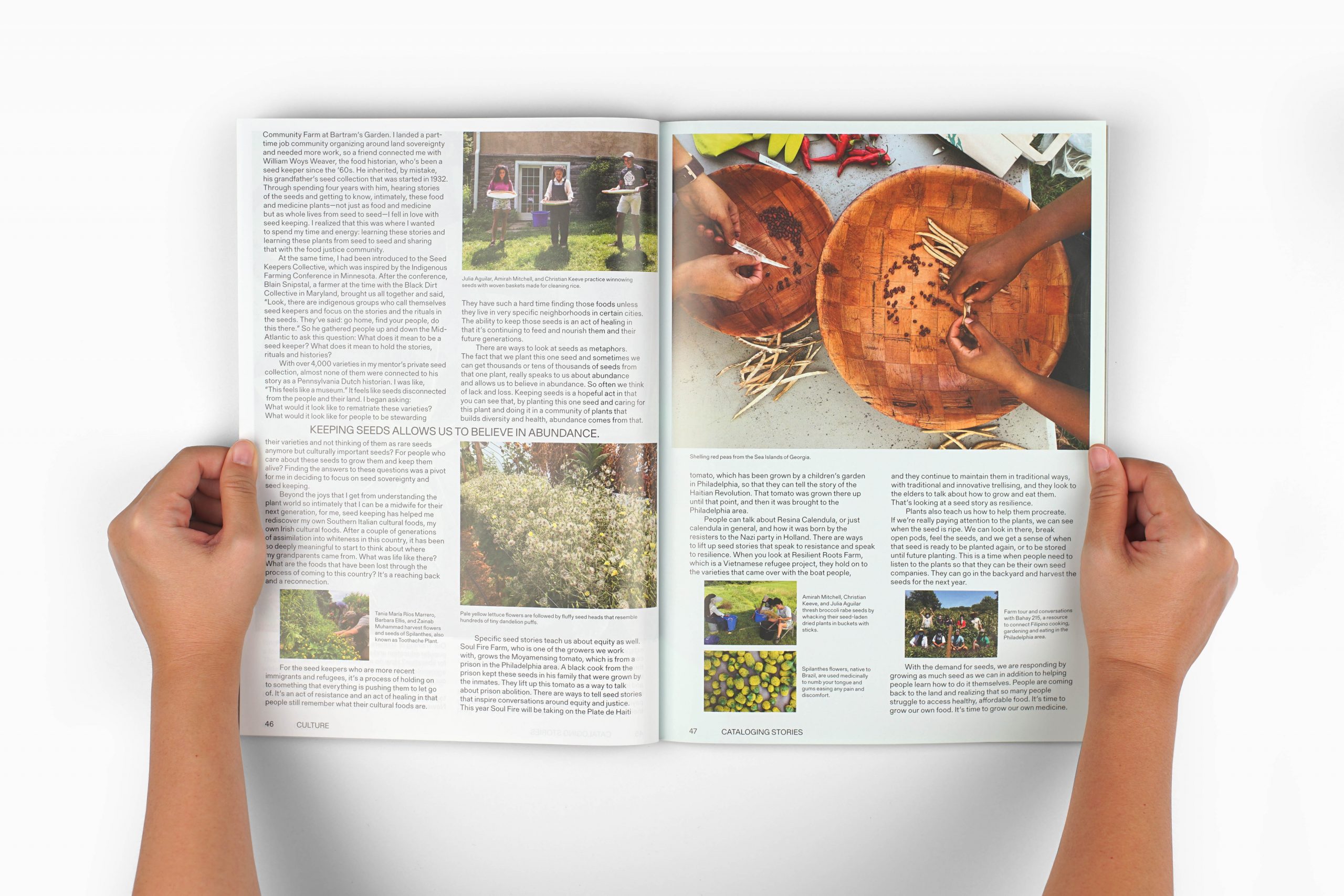LinYee Yuan and Johny Drain (Editors)
English
New York, USA
30 x 22 cm, 152 pages, color, offset, glue bound, softcover
The precarity of 2020 feels like a referendum on our collective futures. In a moment of deep spiritual, ecological and political crisis, where the immutability of truth has been slowly and deliberately eroded by demagogues, a pandemic is disproportionately ravaging BIPOC and migrant communities, and a global uprising is fomenting on our streets against oppressive systems of colonialism and white supremacy, I am calmed by the words of the writer Arundhati Roy who reminded us that this moment “is a portal, a gateway between one world and the next.”
When we first conceived of the theme of this issue, SEEDS, in 2018, no one could have predicted that its creation would be accompanied by this past year’s rush of pandemic-inspired interest in planting seeds of one’s own. In times of uncertainty our ancestors have also turned to seeds—stowing them away with the hope of seeking out new, more fertile ground. A seed is an ark of intelligence that contains all the information and resources it needs to flourish. This issue honors the seed keepers of the past and the present, and their seeds.
Starting from the question, “what can seed intelligence teach us?”, in this issue we consider how we might design future food systems built on practices of care and nourishment embodied by the adaptive flourishing of seeds. The author, philosopher and activist Vandana Shiva advocates for a new paradigm for living, finding freedom by acknowledging that we are all part of a web of life. Dr. Suzanne Pierre considers the biological potential embedded in each seed and how(despite popular ideas around Darwinism) evolution is actually about shared survival. In thinking about shared survival, Dr. Johnny Drain investigates the ways migrants throughout history have carried ferments with them as a connection to home as they face unknown circumstances—as generation after generation care for these microbial stowaways, the ferments care for them. This generational legacy is what inspires today’s seedkeepers: Vivien Sansour in Palestine, Kristyn Leach in Northern California, Owen Taylor in Philadelphia share lessons from their seed ancestors. Their work and dedication is the inspiration for this issue’s commission for seed libraries: we asked a few of our favorite New York designers and chefs to create seed libraries inspired by the Little Free Library movement and networks of mutual aid that have coalesced in the wake of COVID-19.
MOLD is an online and print magazine about designing the future of food. Through in-depth, original reporting and a distinct vision for how design can transform our food system, our editors cover innovative ideas emerging from the world of food design and technology. From cellular agriculture to 3D food printing, entomophagy to beautifully designed tableware (and why it makes your meal taste better), MOLD spotlights the ideas that will revolutionize how we produce, prepare and eat food in the years to come.
หลินยี หยวน และ จอห์นนี่ เดรน (บรรณาธิการ)
ภาษาอังกฤษ
นิวยอร์ก, สหรัฐอเมริกา
30 x 22 ซม, 152 หน้า, สี, ออฟเซต, ไสกาว, ปกอ่อน
ความไม่แน่นอนของปี 2563 ให้ความรู้สึกเหมือนกับการลงประชามติเกี่ยวกับอนาคตร่วมของเรา ในช่วงภาวะวิกฤตทั้งในเชิงจิตวิญญาณ สภาพแวดล้อม และการเมือง เมื่อความจริงอันไม่แปรผันกำลังถูกกัดกร่อนลงอย่างช้าๆ และจงใจโดยนักการเมืองสายปลุกปั่น โรคระบาดที่กำลังคุกคามชุมชนคนกลุ่มน้อยและคนผิวดำรวมถึงชุมชนผู้อพยพอย่างหนักกว่าชุมชนอื่นๆ และการลุกฮือเพื่อต่อต้านระบบอันกดขี่ของลัทธิอาณานิคมและอภิสิทธิ์ของคนขาวกำลังปลุกระดมบนท้องถนนของเรา ใจของฉันสงบลงด้วยถ้อยคำของนักเขียน อรุณธตี รอย (Arundhati Roy) ผู้ย้ำเตือนเรา ณ ห้วงขณะนี้ว่า “เวลาคือประตู คือช่องทางระหว่างโลกนี้และโลกหน้า”
ตอนที่พวกเราเริ่มคิดถึงการทำงานบนธีมของฉบับ SEEDS (เมล็ดพันธุ์) ในปี 2561 ไม่มีใครคาดการณ์ว่าการทำนิตยสารฉบับนี้จะเกิดขึ้นไปพร้อมๆ กับกระแสการสนใจการเพาะเมล็ดพืชพันธุ์ที่เกิดขึ้นอย่างรวดเร็วแพร่หลายในช่วงเวลาของการระบาด เมื่อครั้งอดีต บรรพบุรุษของเราก็หันไปหาเมล็ดพันธ์ุในช่วงเวลาที่ไม่แน่นอนเช่นกัน –หว่านโปรยมันออกไปด้วยความหวังต่อผืนดินใหม่ที่จะอุดมสมบูรณ์ยิ่งกว่าเดิม เมล็ดพันธุ์คือเรือแห่งปัญญา บรรทุกข้อมูลและทรัพยากรที่จำเป็นต่อการเจริญเติบโต นิตยสารฉบับนี้สดุดีผู้สะสมเมล็ดพันธุ์ทั้งในอดีตและปัจจุบัน รวมถึงเมล็ดพันธุ์ที่พวกเขาเหล่านั้นสะสม
จากคำถามที่ว่า “ปัญญาแห่งเมล็ดพันธุ์สอนอะไรแก่เรา” ในฉบับนี้ เราลองคิดว่าเราอาจจะออกแบบระบบอาหารในอนาคตได้อย่างไรจากการดูแลและการเลี้ยงดูพืชที่เกิดจากการปรับปรุงเมล็ดพันธุ์ นักเขียน นักปรัชญา และนักเคลื่อนไหว วันทนา ศิวะ (Vandana Shiva) สนับสนุนกระบวนทัศน์ใหม่แห่งการดำรงชีวิต ค้นหาอิสรภาพโดยการตระหนักรู้ว่าเราเป็นส่วนหนึ่งของเครือข่ายแห่งชีวิต ดร. ซูซานน์ ปิแอย์ (Dr. Suzanne Pierre) พิจารณาถึงความสามารถทางชีววิทยาที่ฝังอยู่ในเมล็ดพันธุ์ และความจริงที่ว่าวิวัฒนาการคือการร่วมกันเอาตัวรอด (แม้แนวคิดของดาร์วินเรื่องการคัดสรรตามธรรมชาติจะยังแพร่หลายกว่าก็ตาม) เมื่อพูดถึงแนวคิดการเอาตัวรอดร่วมกันนี้ ดร. จอห์นนี่ เดรน (Dr. Johnny Drain) สืบเสาะวิธีที่ผู้อพยพในประวัติศาสตร์นำของหมักดองติดตัวยามอพยพย้ายถิ่น ในฐานะสายใยที่เชื่อมโยงพวกเขาเข้ากับบ้านเกิดเมืองนอน ในสถานการณ์ที่ไม่แน่นอนว่าจะเป็นไปอย่างไร จากรุ่นสู่รุ่น พวกเขาดูแลรักษาจุลินทรีย์ในของหมักดอง และของหมักดองเหล่านี้ก็ดูแลจิตวิญญาณของพวกเขา การรักษาสืบทอดจากรุ่นสู่รุ่นเช่นนี้เอง เป็นแรงบันดาลใจให้นักสะสมเมล็ดพันธุ์ วิเวียน ซานเซาว์ (Vivien Sansour) จากปาเลสไตน์ คริสติน ลีช ( Kristyn Leach) จากแคลิฟอเนียร์ตอนเหนือ โอเว่น เทย์เลอร์ (Owen Taylor) จากฟิลาเดเฟีย มาร่วมแบ่งปันความรู้จากเมล็ดพันธุ์โบราณที่พวกเขาเก็บสะสมไว้ ผลงานและการอุทิศตนให้กับการสะสมเมล็ดพันธุ์พืชของพวกเขาเป็นแรงบันดาลใจให้เราทำห้องสมุดเมล็ดพันธุ์ในฉบับนี้:เมื่อเราขอให้นักออกแบบและเชฟที่เราชื่นชอบในนิวยอร์กสร้างห้องสมุดเมล็ดพันธุ์ โดยได้แรงบันดาลใจจากการเคลื่อนไหวและเครือข่าย Little Free Library ที่รวมตัวเพื่อช่วยเหลือซึ่งกันและกันตั้งแต่การอุบัติขึ้นของโควิด-19
MOLD เป็นสิ่งพิมพ์แบบออนไลน์และรูปเล่ม เกี่ยวกับการออกแบบอนาคตของอาหาร ว่าการออกแบบสามารถที่จะเปลี่ยนระบบอาหารของเราได้อย่างไร ผ่านการวิจัยเชิงลึก การรายงานที่รู้จริง และมุมมองที่แตกต่าง บรรณาธิการของเรารวบรวมเอาแนวคิดล้ำสมัย ที่เกิดจากโลกของการออกแบบอาหารและเทคโนโลยีทางอาหารเอาไว้ด้วยกัน ตั้งแต่เรื่องการทำการเกษตรเซลลูลาร์ไปจนถึงการพิมพ์อาหารด้วยเครื่องพิมพ์สามมิติ กีฏวิทยาไปจนถึงการออกแบบเครื่องใช้บนโต๊ะอาหารให้สวยงาม (และเหตุผลที่ว่าทำไมมันทำให้อาหารอร่อยขึ้น) MOLD เผยให้เห็นถึงแนวคิดที่จะปฏิวัติวีถีแห่งการผลิต การเตรียมอาหาร และการกินอาหาร ในช่วงเวลาที่กำลังจะมาถึง



